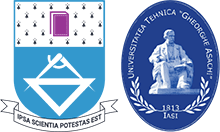The Master’s degree program in Artificial Intelligence provides graduates of bachelor’s degree programs, with a foundational background in computer programming and algorithm design, with in-depth knowledge in the field of artificial intelligence. This includes advanced studies in machine learning and deep neural networks, natural language processing, probabilistic reasoning, multi-agent systems, reinforcement learning, and concepts of explainable artificial intelligence and neuro-symbolic methods. The program also addresses practical aspects, including many projects that involve the use of artificial intelligence techniques for various application fields such as automotive, cybersecurity, or image and sound processing. The program has an international openness through the English-language instruction.
STUDY DISCIPLINE
Year I
Year II
Teaching Series
Curriculum plans for 2024-2025
Acquired skills (listed in the supplement)
Professional skills
- The knowledge of advanced concepts in computer science and information technology, as well as the ability to operate with these concepts.
- Scientific research and practice in the field of artificial intelligence.
- Solving problems using artificial intelligence methods and techniques.
- Design and development of artificial intelligence systems.
- The use of artificial intelligence tools and technologies.
Transversal skills
- The application, in the context of complying with legislation, of intellectual property rights, principles, norms, and values of the professional code of ethics within one’s own strategy of rigorous, efficient, and responsible work.
- The application of relationship techniques and effective teamwork; the development of empathetic communication skills and the assumption of leadership roles/functions within a multidisciplinary team.
- Creating opportunities for continuous training and effectively utilizing resources and learning techniques for personal development.
Possible occupations (COR code – Classification of Occupations in Romania)
- Research Engineer in Computers (215236)
- Computer Researcher (215235)
- Research Assistant in Computers (215237)
- Systems and Computer Design Engineer (215214)
- Computer Network Administrator (System Engineer) (252301)
- Database Administrator (252101)
- Software Systems Engineer (251205)
- IT Project Manager (251206)


